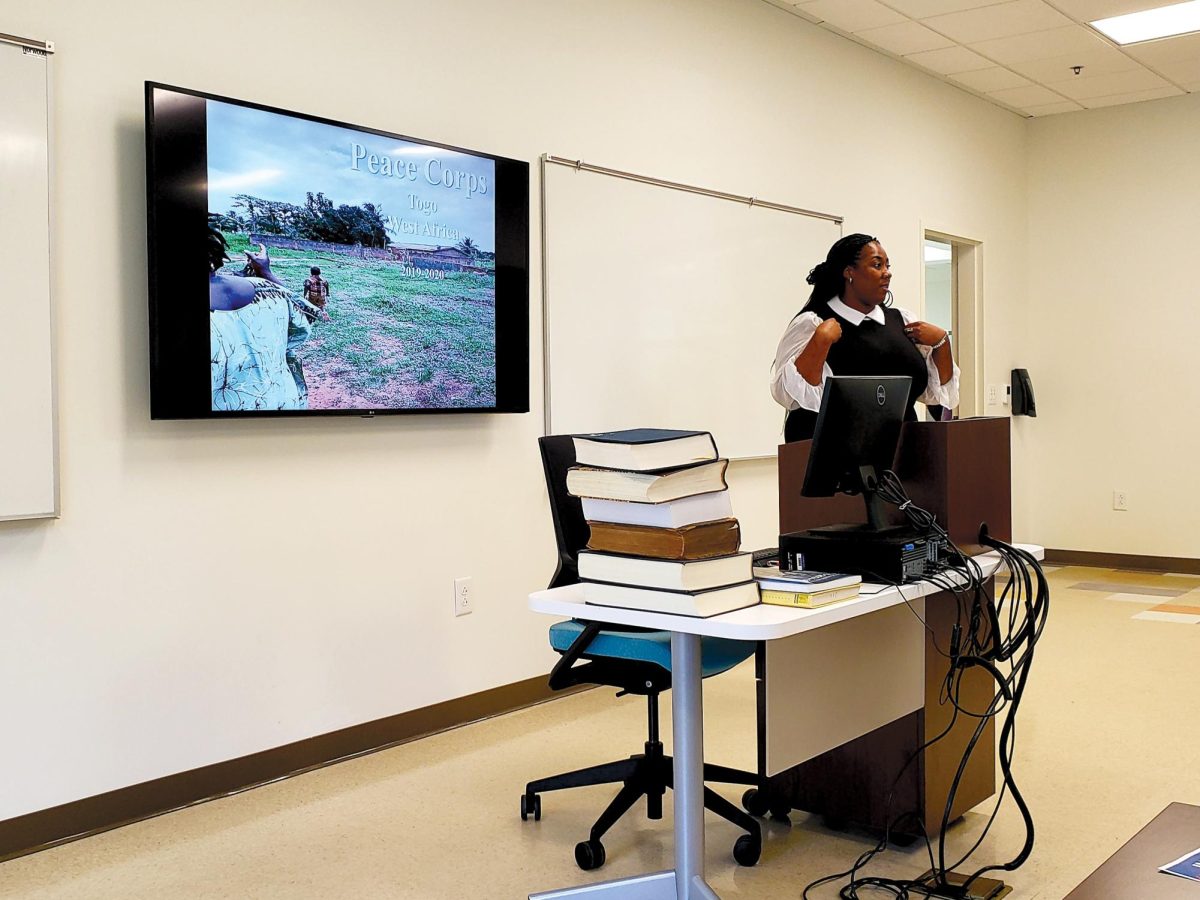KeAnjane’ Govan, a Peace Core volunteer, spoke to students about her position as a community health educator in Togo, West Africa, on Oct. 18 in the Honors Center.
In the heart of West Africa, the nation of Togo grapples with numerous health challenges, from infectious diseases to limited healthcare access. Public health educators play a pivotal role in addressing these issues, spreading awareness and empowering communities to take control of their well-being.
Govan collaborated with local clinics and hospitals to organize health camps, where medical professionals provided services like vaccinations, screenings and consultations. Govan’s expertise in communication and community relations has made these camps highly effective in reaching marginalized populations.
Some of the health concerns the Togolese people face include malaria, malnutrition and inadequate access to clean water and healthcare services. To tackle these challenges, public health educators are essential components of the country’s healthcare system. Govan believes public health educators in Togo are at the forefront of community engagement and education. They conduct workshops, distribute informational materials and organize community events to reach as many people as possible.
Public servants dedicate themselves to community health education and transforming lives. Govan’s work extends to remote villages, where she educates locals on topics such as sanitation, hygiene, family planning and nutrition. Her efforts have helped reduce the prevalence of waterborne diseases and malnutrition in these underserved areas.
Public health educators work closely with healthcare providers to bridge the gap between medical expertise and the community. They serve as intermediaries, translating complex medical information into accessible, culturally relevant content. This collaboration ensures that individuals not only understand the importance of healthcare but also feel comfortable seeking it.
Preventive healthcare is a key focus for public health educators in Togo. They emphasize the importance of vaccinations, regular check-ups and healthy lifestyles. This proactive approach helps reduce the burden on the healthcare system and improves overall community health. In Togo, public health educators advocate for immunization programs, especially for children, to prevent diseases like measles and polio. These efforts have contributed to a significant increase in vaccination rates and a decrease in preventable diseases.
Cultural competence is an essential trait for public health educators in Togo. They must respect and understand the local customs, beliefs and traditions while delivering health education. Failure to do so can hinder the acceptance of health initiatives.
Govan approaches communities with respect and a deep appreciation for their traditions. This approach has helped her build trust and rapport with the communities she serves, making her health education efforts more effective.
